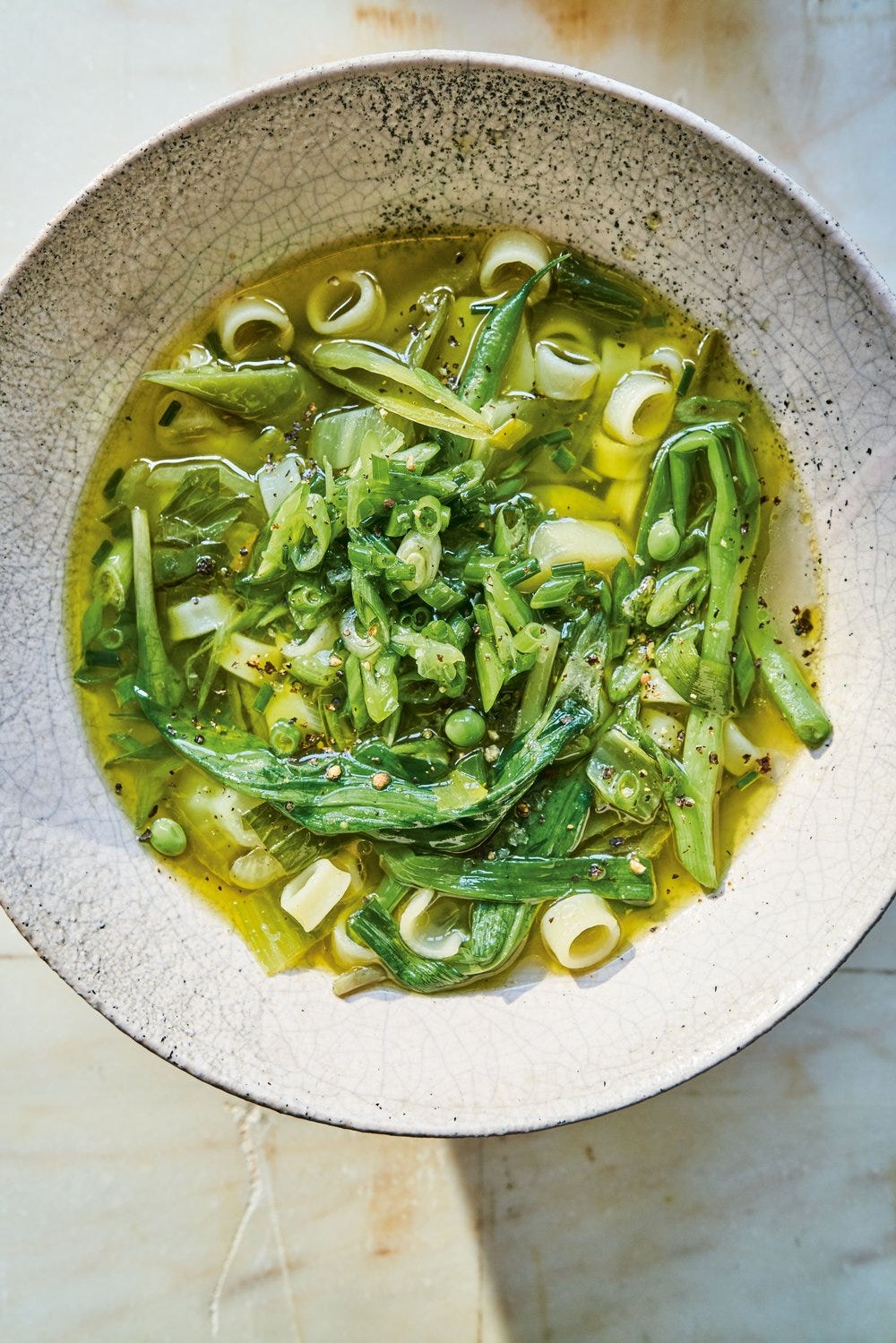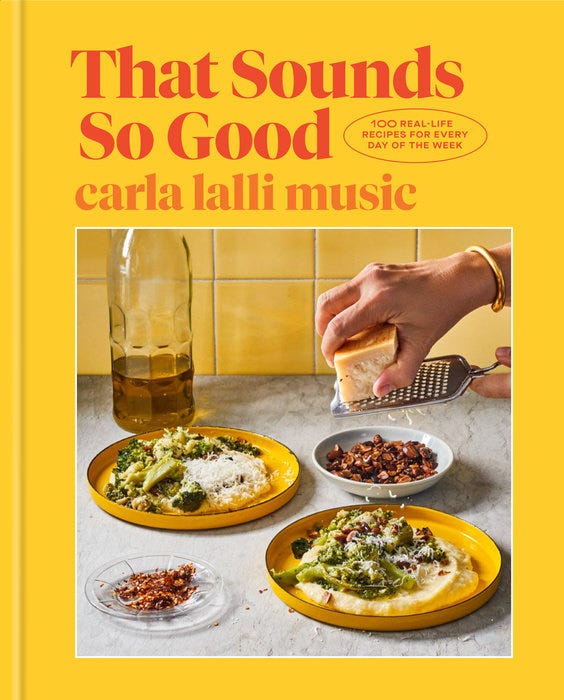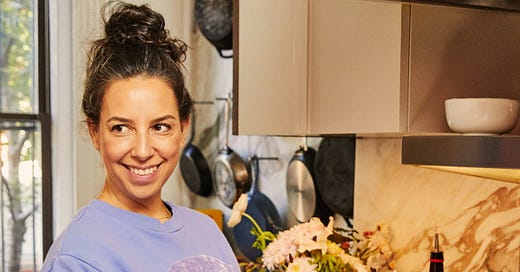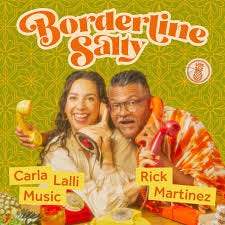Carla Lalli Music to home cooks: You don't have to mise en place.
Carla shares this advice and more home cooking tips from her latest book, That Sounds So Good, with our producer.
Wow! We’re so excited to see so many new subscribers! In celebration of being a featured Substack newsletter, we’re making this week’s Friday Note free for all subscribers to give a preview of some of the great content you’ll get as a paid reader. For $5 per month (or $50 a year), you’ll get essays like this one, weekly featured recipes, cookbook excerpts, and more. Your support means the world to our team. Of course, our weekly podcast episodes—where we interview the most interesting cookbook authors—will always be free to everyone. Thanks so much for joining our community and we can’t wait to #TalkCookbooks with all of you. –Brian, Clea, & the Salt + Spine teamThis piece is part of our Friday series in which Salt + Spine producer and avid home cook Clea Wurster offers a new Q&A, an essay on cookbooks, and other bonus content for our paid subscribers.
Carla Lalli Music is the queen of “spinning it,” and she wants you to be, too.
That’s why her Instagram is overflowing with endlessly adaptable dishes and her YouTube videos are filled with a red attitude towards recipes. Carla herself is always mixing things up. She’s a role model for home cooks who want to learn how to wing it and still find a delicious dinner at the end of their adventure.
“When I wrote Where Cooking Begins, I realized that I never really cooked the same thing the exact same way twice and I wanted the recipes to reflect that,” Carla explained, referencing her first cookbook.
Carla doesn’t believe in hard and fast rules—unless, of course, you’re baking, in which case follow the recipe!
Hear our previous conversation with Carla Lalli Music here:
Where Cooking Begins is a home cook’s dream: Don’t know how to sauté? Carla’s got you covered. Want to know which ingredients respond well to a hot-as-heck cast iron? Carla’s got you covered. Sick of schlepping groceries to and fro? Again, Carla’s got you covered.
And she really lives by the advice she gives.

When we chatted back in July, Carla had just been given some beef cheeks and had to find a way to use them. Just like any of us amateurs might do, she immediately started browsing recipes. But she didn’t follow a single one of them. Instead, she did what recipe developers often do and came up with her own approach.
“Recipe developers will have an idea of something they want to make. And the truth is, most dishes exist in some form or another,” she told me. Carla’s job is often to find a way to work with an ingredient based on what countless cooks before her have done. Cooking isn’t about reinventing the wheel: it’s about making something delicious out of what you’ve got in front of you, and there are tried and true methods for doing just that.
Luckily, the best cooks know how to write, too, and Carla is practical about what we do with her recipes.
“I understand that people don’t always read the whole recipe.” (Busted, but at least I’m not alone.) “I can't tell you how many times, half an hour before people are supposed to come over, I’ve sent out the text, being like, ‘Hey, could you actually come like 45 minutes later? Because I'm not dressed and the food isn't ready.” Carla laughed as she said it, but having been in that position myself, it’s not actually that funny
Normally, though, it isn’t just that we didn’t read the recipe, it’s also that “people don’t necessarily know how to juggle time,” says Carla. While we’d all probably agree this applies equally to what happens outside the kitchen, the consequences when it comes to cooking can be frustrating. It’s the difference between cooking myself or resorting to cold leftovers or expensive takeout. (Or at least for me it is.)
And here’s where her second cookbook, That Sounds So Good, comes in. It’s almost like Carla’s writing a course in home economics, with way better pictures than your typical middle school textbook. Her second cookbook isn’t just about how to adapt recipes—but also how to choose menus and how to manage your schedule.
First lesson? Forget the mise en place approach and use the quiet moments in a recipe wisely.

“I think we've lied to home cooks for a really long time. And by we, I mean food writers and recipe developers, by leaning into this idea about mise en place, really hammering it home with home cooks that if you want to cook like a professional you have to have your mise en place.”
That’s not to say you have to ditch your adorable prep bowls—Carla just wants us to know the truth. And so that’s how she’s been writing her recipes. She says we should all “start with the thing that takes the longest first and then slot in all the other little tasks.” Genius.
Next lesson? Ignore the time estimates.
“They’re never accurate and it’s nobody’s fault. You just can’t control for that. You have no idea how long someone gets distracted answering the phone, or if the speaker system isn’t working and they stop cooking for 10 minutes to get the podcast back on. You just have no idea, you know?”
As I said, she’s practical.
These days you can hear more from Carla on her podcast, Borderline Salty, from Pineapple Street Studios, with former Bon Appetit staffer Rick Martinez (whose debut cookbook, Mi Cocina, is also out now). Home cooks and fans call in with questions, Carla and Rick swap cooking tips and stories, and it’s an all-around good time. The show is filled with practical tips for home cooks and engaging interviews—and Carla and Rick are obviously hilarious.
So next time you’re trying to plan a dinner party, cue up some episodes, ignore the cooking time, and turn to Carla’s tried-and-true recipes.






